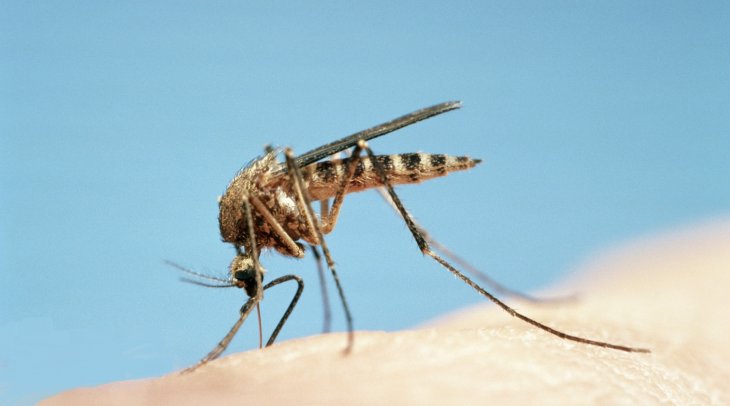Mosquito Control

Mosquito Control
You can reduce mosquito annoyance greatly by eliminating sites that serve as habitats for mosquito larvae. All mosquito larvae need standing water to develop. As little as one-quarter inch of water in a discarded container will support dozens of mosquitoes.
By following these simple procedures, each of us can contribute to a lower mosquito population.
- Check your property for all types of containers that can hold water–store them inside or turn them upside down when not in use. Examples include:
- trash can lids
- trash cans/recycling bins
- flowerpots
- buckets
- children’s toys
- wading pools
- pet food and water dishes (when not actively used)
- tin cans
- tires
- Clean and chlorinate swimming pools, outdoor saunas, and hot tubs. If not in use, keep empty and covered.
- Drain water from pool covers. Arrange the tarp so that water drains away.
- Change the water in birdbaths and in the bottom of plant holders at least twice a week
- Fix dripping outside water faucets
- Eliminate any standing water that collects on your property, if water remains long after rainfall, sweep water from water-holding low areas on your pavement or on your lawn
- Make sure roof gutters drain properly. Clean clogged gutters in the spring and fall. Be sure water can flow freely.
- Chlorinate ornamental ponds that do not contain fish or plant life
- Check around construction sites or do-it-yourself improvements to ensure that proper backfilling and grading prevent drainage problems. Make both large types of equipment, such as wheelbarrows or concrete mixing tubs, and small equipment such as paint cans and paint trays are turned upside down when not in use
- Remind or help neighbors to eliminate breeding sites on their property. By participating in-home or community clean-ups
Reducing the Risk of West Nile Virus
West Nile virus (WNV) is spread to humans by the bite of an infected mosquito. It does not spread from person to person through casual contact.
Most people infected with WNV will have no symptoms at all. About 1 in 5 may experience mild symptoms such as fever, headache, and body aches. In rare cases, a person can develop a serious, sometimes fatal, neurologic illness. There are no medications to treat or vaccines to prevent WNV infection.
You can reduce your risk of being infected with WNV by taking the steps above to help control the mosquito population and by taking precautions to protect yourself. Preventative measures include:
• Avoiding areas of high mosquito infestation
• Avoiding unnecessary outdoor activities at dawn and dusk when mosquitoes are most active
• Wearing light clothing, long pants, long-sleeved shirts, and hats when outdoors
• Using mosquito repellants according to directions
• Ensuring windows have screens; repair or replace screens with holes and tears
Resources: Centers for Disease Control and Prevention, West Nile Virus Information
